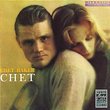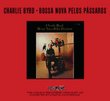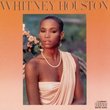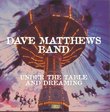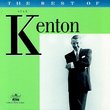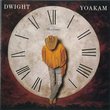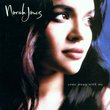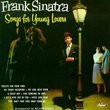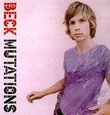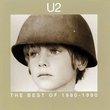| All Artists: Thelonious Monk Title: Monk's Music (20 Bit Mastering) Members Wishing: 3 Total Copies: 0 Label: Riverside Original Release Date: 1/1/2001 Re-Release Date: 11/27/2001 Album Type: Original recording remastered Genres: Jazz, Pop Styles: Modern Postbebop, Bebop Number of Discs: 1 SwapaCD Credits: 1 UPC: 025218483728 |
Search - Thelonious Monk :: Monk's Music (20 Bit Mastering)
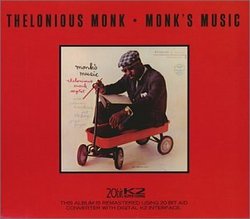 | Thelonious Monk Monk's Music (20 Bit Mastering) Genres: Jazz, Pop
Simply stated, this remastered CD contains some of the most memorable interpretations of Monk's music ever recorded. The original cover of Monk sitting in a little red wagon reminds us that, in 1957, he was still considere... more » |
Larger Image |
CD DetailsSynopsis
Amazon.com Simply stated, this remastered CD contains some of the most memorable interpretations of Monk's music ever recorded. The original cover of Monk sitting in a little red wagon reminds us that, in 1957, he was still considered eccentric by the mainstream. The presence of elder statesman Coleman Hawkins in the horn section (along with John Coltrane and Gigi Gryce), however, indicated that the transition to bebop was now complete. Versions of well-known Monk compositions "Well, You Needn't," "Epistrophy," and "Off Minor" are played with a spirited flourish, with the occasional misstep only making the overall effect even more exciting. Though not fluent, Hawkins nonetheless proves himself conversant with the new vernacular, Coltrane blows with increasingly confident brio, and Monk's playing throughout is exceptional. --Wally Shoup Similar CDs
Similarly Requested CDs
|
CD ReviewsThelonious+Bean+Trane+Buhaina = MASTERPIECE JEAN-MARIE JUIF | BESANCON France | 06/27/2002 (5 out of 5 stars) "June 26,1957 had been a heel of a day for swinging.That day,seven masters entered the Riverside studios to record a very very great record; among these men were three great musicians: trumpetist Ray Copeland,Gigi Gryce on alto sax,and Wilbur Ware on bass; the four other guys were simply some of the greatest giants of jazz,four absolute geniuses : tenor saxophonists Coleman Hawkins (1904-1969),John Coltrane (1926-1967),Art Blakey on drums (1919-1991) and Thelonious Sphere Monk (1917-1982).The music flies at the highest levels all through the record.And that record starts with the most bizarre piece ever recorded (or,rather,arranged) by Monk : "Abide with me".This is the well known hymn of the 19th century,incidentally written by...William H.Monk !!! Who,of course,wasn't related to Thelonious.This very short piece (only 50 seconds long) is arranged for and played only by Copeland,Gryce,Trane and Hawkins.I think that this exceptionnally short masterpiece (surely the shortest one in jazz) had a great influence on several tunes of the repertoire of the Liberation Music Orchestra (the songs and hymns from the spanish civil war,for example).Then,with the second tune,we enter deeply into Monk's music."Well,you needn't" ,more than 11 minutes long,gives everybody the opportunity to blow;Monk,first,in a masterful solo;then,Trane (listen to Monk calling "Coltrane,Coltrane!" just before Trane's solo).Trane's work here shows that everything was already prepared for his future masterpieces.Ray Copeland's solo includes influences of Clifford Brown and Thad Jones,and maybe Charlie Shavers and Roy Eldridge,too.Wilbur Ware's walking bass precedes Buhaina's drums solo,which is, as allways, absolutely terrific.This telluric drumming will allways amaze me.Then comes the Bean,Coleman Hawkins;the first giant of tenor sax,who started playing with Fletcher Henderson in the early twenties.Then comes Gigi Gryce,who is no stranger to Monk's music;he recorded four tunes with Monk on October 15,1955,including three tunes among Monk's most difficult ones:"Brake's sake","gallop's gallop","shuffle boil"; and "Nica's tempo" was Gryce's."Ruby,my dear" is played by Hawk,and this is the perfect tune for the Bean's imperial ballad playing.Just remind that these guys knew themselves for years:Monk was Bean's pianist in the early fourties."Off minor" has great solos by Bean,Copeland and Monk.And the somptuous "Crepescule with Nellie",written by Thelonious for his wife,is mostly devoted to Monk.This piece has been recorded several times by Monk,in quartet,solo,or even big band,but there has never been improvisations on it: just the theme,played once or twice.But what a great twilight (crepescule comes from the french word "crepuscule",which means twilight,dusk). Many of Monk's records are essentials: "brilliant corners",the two Blue Note volumes,"criss cross",the London solo and trio sessions,the Columbia solos,etc,etc.This one isn't the first one to buy,it's just necessary to have." Even the One Problem Illustrates Monk's Genius Pharoah S. Wail | Inner Space | 02/05/2005 (4 out of 5 stars) "This classic from 6/26/57 features Monk, Ray Copeland (trumpet), Gigi Gryce (alto sax), John Coltrane & Coleman Hawkins (tenor saxes), Wilbur Ware on bass and Art Blakey on drums. This is an interesting disc in that it does and does not prove that Miles Davis quote (about horn players oftentimes not sounding good with Monk) to be true. You listen to this disc and you'll be movin' and groovin' along with most of it. For as much as some people don't think Monk was a good accompanist, I think he was amazing. That stuff does it for me almost as much (and sometimes more) than his solos. Those jagged, off-kilter stabs recontextualize every note the soloists play. Focus on Monk's accompaniment during someone elses solo and it makes it sound like their horn is doing a bob-and-weave through Monk's harmonic, swinging labyrinth. That's about as good as it gets, folks! Ware and Blakey are fantastic in this context, and Blakey seems to be even more into the whole "Monk thing" by this date than he was during the Genius of Modern Music Volume 2 era. One thing I love about this album is that there are so many horns. Since Monk was usually in smaller groups it gives this album a unique feel. It's about as close as you can get to killer, rip-swinging Big Band Monk. The downside of this album, you ask? Coleman Hawkins. You could almost think that Miles specifically had Hawkins in mind when he made the Monk-and-horn-players comment. To be fair though, there are two tunes here where Hawkins gets it. I won't name them here, I'll let you find them for yourself... but aside from those 2 tunes, Hawkins is stiff and out of place in this context. I don't want to say that Monk was beyond him (because he does indeed get it and add nicely to 2 tunes), but he is certainly the sore thumb of most of this album. It's not a harmony thing, it's a rhythm thing. He generally doesn't have any sort of that essential bounce you need to navigate the Monkian musical waters. Particularly in comparison to his tenor mate here, John Coltrane. Coltrane is all over it! He "got Monk" in a big way and shines here. As does everyone else. Having said that, this is a great album that you can't afford to pass up. The remaster is lovely, with everyone sounding full and present in the mix. You'll get over Hawkins' stiffness and find alot to love from all the other musicians... and of course these excellent tunes. " Monk and horns. Michael Stack | North Chelmsford, MA USA | 10/11/2005 (3 out of 5 stars) "Thelonious Monk's fifth album for Riverside, recorded in 1957, was the first album to focus on Monk as a composer, hence the title "Monk's Music". Performing with a much larger band than usual-- four horns in trumpeter Ray Copeland, alto saxophonist Gigi Gryce and legendary tenors John Coltrane and Coleman Hawkins with rhythm provided by bassist Wilbur Ware and drummer Art Blakey.
The result is music with a "little big band" feel-- look no further than "Off Minor" for this-- Copeland soars in counter to the three saxes, or to extended arrangements of "Epistrophy" (with a stunning solo from Coltrane) and "Well You Needn't" (with a great one from Hawkins). And speaking of Hawkins, Monk sheds the remainder of the band and performs as a quartet with Hawkins blowing lead on "Ruby, My Dear"-- the tenor eats up the ballad and really gets inside it, putting forth a superb performance. This level of balladry is also present on the first recording of the stunning "Crepuscule with Nellie", where Monk states the theme alone on piano before being joined by the band. Still, these two only go so far as to emphasize the business of the remainder of the recording, and truth is, I don't find this band arrangement works well for Monk. One thing that does work well however is the remastered sound-- this album has never sounded better and the sonic upgrade of this reissue is worth the investment. The recording is augmented by a pair of alternate takes as well. Still, although it's well loved, I've never found "Monk's Music" to be one of the better Monk pieces." |

 Track Listings (8) - Disc #1
Track Listings (8) - Disc #1